
Aloha!
The Daniel K. Inouye Asia-Pacific Center for Security Studies (DKI APCSS) cordially invites you to attend a virtual workshop focused on “Gray Zone Activities in Great Power Competition.”
8-11 March 2021
Monday-Thursday, 1300-1700 hours
Hawaii Standard Time (HST), (UTC-10)
Featuring a variety of distinguished US and Partner-Nation panelists from government, defense, academia, think-tanks, non-governmental organizations, and private industry to discuss whole-of-society matters that influence populations and affect legitimacy in the era of Great Power Competition. Topics include social media and big data influences, political warfare, China’s military modernization as it applies to gray zone activities, the recently released US Defense Department’s Irregular Warfare (IW) Annex, security cooperation and partner engagements in areas short of conflict, and other subjects of strategic interest. Please join us for this timely and informative event!
If you have not registered yet, please do so using the following link.
Distinguished Presenters
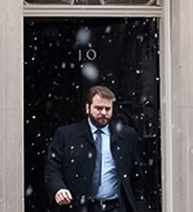
Special Operations & Combatting Terrorism,
Office of the Secretary of Defense (Policy)
Daniel “Deak” Roh is the Principal Director (Acting) within the office of Special Operations & Combating Terrorism (SOCT) of the Office of the Assistant Secretary of Defense for Special Operations/Low Intensity Conflict (SO/LIC). In this capacity, he serves as the deputy to the DASD, focused on integrating and broadening cross-DASD collaboration and representing the DASD-ship in inter-OSD discussions and processes. He also assists with related interdepartmental and interagency coordination.
From July 2017 until December 2020, Deak served as the Director for Irregular Warfare Policy. He was tasked to stand up the directorate with the express purpose of revamping DoD policy on Irregular Warfare, and was the OSD lead for the development of the 2019 Irregular Warfare Annex to the National Defense Strategy.
Prior to his current position, Deak was the Russia Policy Chief, OSD Policy International Security Affairs, from 2014 to mid-2017. During this time, he led the Russia Team in developing initiatives for the Secretary of Defense regarding the Russian Federation’s aggression against Ukraine, a review of the Department’s planning for the Defense of NATO against Russian aggression, and reorientation of the Department’s posture to account for great power competition regarding Russia.
Deak has worked for multiple administrations in the Office of the Secretary of Defense over the past 20 years, focusing primarily on European and Eurasian security and defense issues. Other previous assignments include Country Director, United Kingdom and Ireland; Country Director, Romania and Bulgaria; and Junior Country Director, Russia.
He holds an MA from the Catholic University of America, a BA from the Pennsylvania State University, both in international affairs, and is a graduate of the Department of Defense Executive Leadership Development Program. He is the recipient of the Secretary of Defense Meritorious Civilian Service award, Office of the Secretary of Defense Exceptional Civilian Service Award with Oak Leaf, and the International Security Affairs Impact Award. Deak is a resident of Washington D.C.
Workshop Presentation Topic: Institutionalizing Irregular Warfare across Defense and Whole of Government.
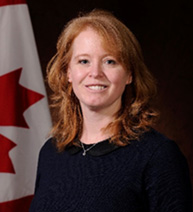
Ms. Garbers began her career at the Privy Council Office, where she served on a small team providing strategic advice on managing the international aspects of Canada’s national unity strategy. She then moved to the security and intelligence field, where she held a number of increasingly senior posts. Her work in this area included positions as an intelligence analyst, the senior officer for Cabinet affairs on national security and foreign policy issues, and the senior advisor to the Prime Minister’s National Security Advisor.
In 2009, Ms. Garbers left the civil service to share her time between her young children and work as an independent consultant. During this period, she specialized in assisting Canada’s national security and intelligence agencies to obtain the policy, legal and funding authorities required to keep pace with changes in the national and international security environments. When her children entered full-time school, Ms. Garbers returned to the civil service as a member of the Department of National Defence. Following her time as Deputy Director General, International Security Policy, she took on the role of Chief of Staff to the President of the Canada Border Services Agency. Ms. Garbers returned to the Defence Team in April 2018 as Director General, Strategic Defence Policy.
Ms. Garbers holds a B.A. (Hons.) in Political Science from Toronto’s York University, M.A. in International Affairs from the Norman Paterson School of International Affairs at Carleton University, and certificate in French Language Studies from Laval University.
Workshop Presentation Topic: “Military Equities in Below Threshold Conflict Across the DIME.” Strategies and statecraft that define today’s hostile state activities across the DIME with a view to surfacing the military equities at play and asking the question, “In a democracy, what role should militaries play in whole-of-nation efforts to counter Below Threshold Conflict?”
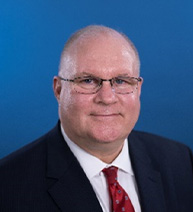
Colonel, US Army Special Forces (Ret), Foundation for Defense of Democracies
David S. Maxwell is a Senior Fellow at the Foundation for Defense of Democracies. He is a 30-year veteran of the US Army, retiring as a Special Forces Colonel. He served over 20 years in Asia, primarily in Korea, Japan, and the Philippines. Colonel Maxwell served on the United Nations Command / Combined Forces Command / United States Forces Korea CJ3 staff where he was a planner for UNC/CFC and co-author of the original ROK JCS – UNC/CFC CONPLAN. He later served as the Director of Plans, Policy, and Strategy and then Chief of Staff for the Special Operations Command Korea. He commanded the Joint Special Operations Task Force Philippines (JSOTF-P), served as the G3 for the United States Army Special Operations Command and culminated his service as a member of the military faculty at the National War College.
Following retirement, he served as the Associate Director of the Security Studies Program at Georgetown University’s School of Foreign Service. Colonel Maxwell is a fellow at the Institute of Corean-American Studies, and on the Board of Directors of the Committee for Human Rights in North Korea, the International Council of Korean Studies, the Council on Korean-US Security Studies, the Special Operations Research Association, the OSS Society, and the Small Wars Journal.
He earned a B.A. in political science from Miami University, and an M.A. in Military Arts and Science from the U.S. Army Command and General Staff College and from the School of Advanced Military Studies, and an M.S. in National Security Studies from the National War College. Colonel Maxwell currently teaches Unconventional Warfare and Special Operations for Policy Makers and Strategists.
Workshop Presentation Topic: DOD’s Contribution to Political Warfare in the age of Great Power Competition.
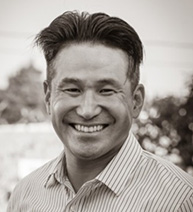
Strategic Advisor to the Institute for Security and Technology and Adjunct Professor of Politics at the University of San Francisco
Doowan Lee is a strategic advisor to the Institute for Security and Technology and adjunct professor of politics at the Univ. of San Francisco. Working at a Silicon Valley tech company, he leverages emerging AI technologies to empower open society & support national security. He is a national security expert specializing in disinformation analysis and great power competition in the information environment. As a faculty member and principal investigator at the Naval Postgraduate School for over eleven years, he developed and executed high impact sponsored analytic projects from federal R&D agencies to support democratic governments’ efforts to defend against violent extremist networks and authoritarian regimes. Central to this work was a focus on how China and Russia exploit social media and communications technology to undermine organic political processes.
He has worked closely with the US government to develop strategies against North Korea’s nuclear weapons program, including deterrence and crisis response, and serves as a subject matter expert on these areas. He is also a board advisor to several technology and media production start-ups.
Workshop Presentation Topic: Social media, influence, and the importance of being able to exploit big data in Great Power Competition.
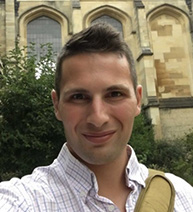
Assistant Professor, Naval Postgraduate School
Dr. Tommy Jamison is a military historian and Asst. Professor of Strategic Studies in the Defense Analysis Dept., Naval Postgraduate School. His work explores the history of naval development and conflict in the Pacific, with an emphasis on technological shifts and institutional adaptation. He holds a Ph.D. (2020) and MA (2017) in International History from Harvard University, a BA in History from Grinnell College (2009) as well as language certificates from the Beijing Language and Culture University.
His work has been published by the Journal of Military History and Intelligence and National Security. In 2020, Dr. Jamison completed his dissertation “Pacific Wars: Peripheral Conflict and the Making of the New Navy, 1865-1897,” with support from the H.F. Guggenheim Foundation.
Before arriving at NPS, Dr. Jamison enjoyed a year-long predoctoral fellowship at the Clements Center for National Security, University of Texas at Austin. From 2012-2014, Dr. Jamison worked as a Defense Intelligence Agency Staff Officer in both the Western Pacific and Afghanistan. Between 2009-2012 he served as the Intelligence Officer in a Japan-based Navy F/A-18F squadron. He currently lives in Monterey, CA with his wife and their springer spaniel.
Workshop Presentation Topic: “Irregular War and China’s First Military Modernization: The Qing Confronts the West.” Thoughts on the first phase of maritime asymmetrical warfare in China during the late Qing (c. 1860-1895) and what it might tell us about A2AD and China’s position in the region today.
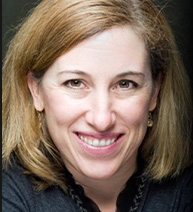
Senior Research Fellow for the Toda Peace Institute, the Alliance for Peacebuilding, and George Mason University’s Carter School for Peace and Conflict Resolution
Dr. Lisa Schirch is Senior Research Fellow for the Toda Peace Institute, the Alliance for Peacebuilding, and George Mason University’s Carter School for Peace and Conflict Resolution. She is the author of 11 books including Designing a Comprehensive Peace Process for Afghanistan and The Ecology of Violent Extremism: Perspectives on Peacebuilding & Human Security. As a practitioner, Schirch has facilitated and participated in the design of national peace processes in Fiji, Afghanistan, Israel/Palestine and several other countries. Schirch’s expertise centers on civil society, just and participatory governance, social cohesion, and social media technology.
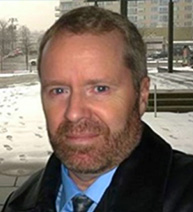
US Special Operations Command (USSOCOM)
Robert Jones is a retired U.S. Army Special Forces Colonel; a former Deputy District Attorney; and the senior strategist at U.S. Special Operations Command. Currently serving as a member of the SOCOM J5 Donovan Strategic Initiatives Group, Mr. Jones is responsible for leading innovative thinking on the strategic environment and how it impacts factors critical to national security; such as the evolving character of conflict, deterrence in competition and societal stability. He also serves as the Strategic Advisor to the Director of Plans, Policy and Strategy.
Mr. Jones is a featured lecturer for the JSOU Enlisted Academy on strategy, the evolving character of conflict, impact on viability of solutions, and implications for SOF. The Air War College also brings in Mr. Jones each year during their operational design phase to discuss the art of creative thinking in the context of design. He is currently promoting concepts and courses of action rooted in the principles of insurgency and unconventional warfare intended to revolutionize SOF operationalization of the National Defense and National Military Strategies. His focus is the pursuit of understanding, and the provision of context. If the world will not conform to what we wish it to be, then we must understand and engage the world as it actually is.
Mr. Jones is recently returned from Afghanistan in support of the RESOLUTE SUPPORT mission, where he is serving as the Deputy J5 for Special Operations Joint Task Force- Afghanistan.
Workshop Presentation Topic: Raise questions and offer alternatives as to “IW to do what, why and how” to get to better strategic results than traditional thinking has yielded.
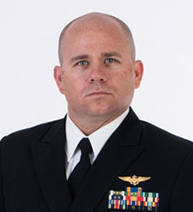
Commander, US Navy,
US Indo-Pacific Command (INDOPACOM)
CDR Andreas Helchinger (USN) is currently serves the Branch Chief of the Competition Branch in the Future Plans directorate of USINDOPACOM. He previously served as the Maintenance Officer of Patrol Squadron 47 where he was responsible for the transition to, and maintenance of, the squadron’s brand new P-8A Poseidon aircraft as well as the administration and training of the squadron’s 180 maintenance personnel. CDR Helchinger entered service as a 2002 graduate of the US Naval Academy in Annapolis, Maryland. CDR Helchinger then went on to earn his pilot wings in June 2004 and eventually became a P-3C Mission Commander and Instructor Pilot and led multiple Combat Air Crews on deployments to the 5th/6th/7th Fleet Areas of Responsibility with multiple squadrons. His shore tours include tours at both Commander, Task Force 72 and the US Pacific Fleet where he served as the Japanese Maritime Self Defense Force Liaison Officer and the executive assistant to the Director, Warfare Requirements, Resources, and Force Structure, respectively.
CDR Helchinger’s academic credentials include a Masters of Science in Joint Campaign Planning and Strategy from the Joint Advanced Warfighting School as part of the Joint Forces Staff College, Master of Arts in Defense and Strategic Studies from the US Naval War College, and a Bachelor of Science in History from the US Naval Academy.
Workshop Presentation Topic: Co-speaker with Mr. Joel Johnson, discussing INDOPACOM’s competition process: How the Combatant Command uses military power short of armed conflict to accomplish or set conditions for national objectives.
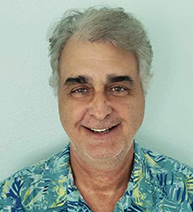
Counter-Terrorism Plans Manager,
US Indo-Pacific Command (INDOPACOM) J35
Joel Johnson has been the civilian Counter-terrorism Plans Manager in the USINDOPACOM J35 Future Operations Division since 2005 with actual duty requirements that have allow him to be a crisis planner for every crisis, contingency operation, and near-miss in the Indo-Pacific for the last 15+ years.
Prior to his civilian job, Joel was an Army officer with commands in 1st Special Forces Group (Airborne) at the Operational Detachment-A, Company, and Battalion-levels and he served on the Special Operations Command – Pacific (SOCPAC) and US Army Pacific (USARPAC) staffs including his last assignment as the G3 Plans Chief for USARPAC. As any good Indo-Pacific career lifer should, Joel started his Army career as a lieutenant in the Republic of Korea. Joel is the principle author of USINDOPACOM Contingency Plan 5300 for CT and CWMD response and the USINDOPACOM Response Forces appendix to the Theater Campaign Order and routinely provides training to the USINDOPACOM staff and other government agencies on USINDOPACOM crisis response capabilities.
Workshop Presentation Topic: Co-presenter with CDR Andreas Helchinger, discussing INDOPACOM’s competition process: How the Combatant Command uses military power short of armed conflict to accomplish or set conditions for national objectives.
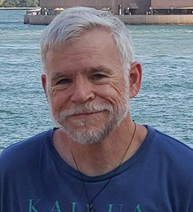
US Special Operations Command – Pacific
(SOCPAC)
William (Bill) Moore is the lead strategist and campaign planner for Special Operations Command, Pacific. Prior to serving in this in role he had over thirty years of active duty service in Special Operations, with operational experience in Central Asia, Africa, and East Asia. He works closely with interagency and joint force partners to shape and develop counterterrorism and great power competition campaigns. Additionally, he works closely with USSOCOM to shape the future of Special Operations based on anticipated requirements. He is a distinguished graduate of the Joint Advanced Warfighter School.
Workshop Presentation Topic: The nature of the strategic threat in the Indo-Pacific, and challenges within our current culture and system to achieve national objectives from a Special Operations perspective.
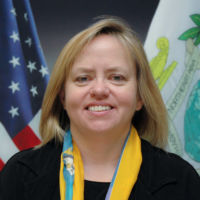
Professor and Development Advisor, DKI APCSS
Lori Forman joined the Asia-Pacific Center for Security Studies in August 2011. She brings to the center a unique international background in corporate, government, academic and non-profit sectors. An expert on international economic development and foreign aid, Dr. Forman has extensive field experience in sustainable development, labor mobility, civil society and public-private partnerships.
Dr. Forman served as a visiting professor at Keio University in Japan in three academic years. Most recently in 2009-2010, she taught a graduate seminar on public-private partnerships while conducting research for her doctoral dissertation on the same topic. In the 1999-2000 and 2000-2001 academic years, she designed and taught courses on the management of non-governmental organizations (NGOs) and their role in international affairs and global governance.
Before coming to APCSS, Dr. Forman was the first Vice President for Corporate Responsibility for a Dubai Holding company, Tatweer, based in Dubai. Before moving to Dubai, Lori worked for five years with Microsoft as the Regional Director of Community Affairs for Asia. Based in Singapore, she oversaw the regional management of Microsoft’s competitive grants programs, disaster assistance, and software donations throughout Asia-Pacific. An important part of her work was the identification and development of partnerships with regional and international organizations.
Prior to joining Microsoft, Lori served in two senior positions in the US government: US Alternate Executive Director on the Board of Directors of the Asian Development Bank in Manila, Philippines, and Assistant Administrator for Asia and Near East of the US Agency for International Development. At ADB, she was a member of the Development Effectiveness Committee and the Professional Women’s Council. Appointed as USAID Assistant Administrator by the President and confirmed by the US Senate in 2001, she directed US foreign assistance programs throughout the Asia and the Near East regions, totaling nearly $3 billion annually. This was Lori’s second time in USAID, having served as a special assistant and program officer in the agency for seven years from 1983-90.
In between her times at USAID, Dr. Forman was in the NGO sector, as the Director of the Japan Program for The Nature Conservancy, one of the world’s largest environmental organizations. Lori worked closely with the Japanese foreign aid agencies and major corporations to support environmental projects in the developing countries of Asia, Pacific, Latin America and the Caribbean. During her tenure, she raised over $40 million for these projects.
Lori has also served on the board of various organizations. In November 2007 she was appointed by Secretary of State Condoleeza Rice to serve on the Board of Governors of the East-West Center, a national educational institution established by Congress to promote better relations and understanding between the United States and the nations of Asia and the Pacific.
Lori began her post-graduate career in Washington DC, serving as the Senior Political Analyst for the White House pollster. She has a BA from Augustana College, and a Masters of Public Policy from the Kennedy School of Government, Harvard University. In 2012, she received her Ph.D. from Keio University in Japan.
Workshop Presentation Topic: Co-presenter with Dr. Tim Buehrer and Dr. Srini Sitaraman on Gray Zone Economics.
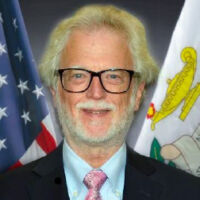
Professor, DKI APCSS
Dr. Timothy Buehrer joined the Daniel K. Inouye Asia-Pacific Center for Security Studies (DKI APCSS) in September 2020. Dr. Buehrer has over 30 years’ experience as an economist and a lawyer advising governments and other organizations in Southeast Asia, Micronesia, Africa, the Middle East, and the United States. Over his career Dr. Buehrer has organized and taught in well over one hundred training events for government officials and supported efforts of the U.S. Department of State and the U.S. Agency of International Development to promote stronger linkages between the U.S. and the countries where he was working.
For over a decade, Dr. Buehrer directed a series of USAID projects supporting regional integration in Southeast Asia through the ASEAN Secretariat. During that time he worked on a wide variety of issues relating to trade facilitation, micro, small and medium enterprise development, the digital economy, human rights, education, labor, disaster management, environmental protection, and pandemic response. Prior to his work in ASEAN, Dr. Buehrer supported ministries of finance, trade, and planning in Indonesia, Mozambique, and Egypt on trade, macroeconomic, monetary policy, exchange rate, poverty, institutional development, and customs issues. In all of these efforts he worked in or led teams of American, local, and regional experts to deliver needed and timely advice on core policy issues.
Earlier in his career, Dr. Buehrer worked in the Federated States of Micronesia on fiscal and development issues, including fisheries management, public investment, and the establishment of a flag of convenience, among other matters. He also practiced law in Washington, D.C., participating in large scale litigation related to the natural gas crisis of the 1970s.
Dr. Buehrer received Bachelor of Science degrees in Chemistry and Political Science from the Massachusetts Institute of Technology, a Juris Doctor degree from Harvard Law School, a Masters of Public Policy from the Kennedy School of Government, Harvard University, and a Ph.D. in Public Policy from the Harvard Graduate School of Arts and Sciences. He is a member of the bars of the District of Columbia and the Supreme Court.
Workshop Presentation Topic: Co-presenter with Dr. Lori Forman and Dr. Srini Sitaraman on Gray Zone Economics.
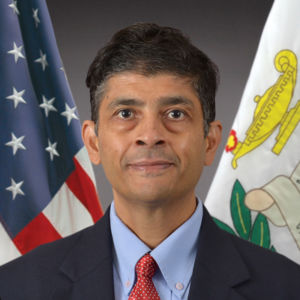
Professor, DKI APCSS
Dr. Srini Sitaraman joined the Daniel K. Inouye Center for Asia Pacific Studies (DKI APCSS) as a Professor in December 2019. His focus at the DKIAPCSS is on the Indo-Pacific Security with a particular focus on South Asia, Regional Conflict, and India-China Relations. He is also interested in New Technologies & International Security, Internet and Digital Diplomacy, Nonproliferation, and the United Nations and International Law.
Prior to arriving at the DKI APCSS, Dr. Sitaraman was a tenured Associate Professor in the Department of Political Science at Clark University in Worcester, MA, where he directed the award-winning Model United Nations Program. He was also a core faculty member of the Asian Studies Program and affiliated with the Strassler Center for Holocaust and Genocide Studies. In addition, Sitaraman was an Associate-in-Research at the Fairbank Center for East Asian Research at Harvard University.
Dr. Sitaraman holds a Bachelor’s and Master’s Degree in Economics from the University of Madras, India, and a Master’s Degree in International Affairs from Ohio University. He received his doctorate in Political Science and International Relations from the University of Illinois Urbana-Champaign (UIUC). At UIUC, he was a Research Associate at the Program for Arms Control, Disarmament, and International Security.
His book State Participation in International Treaty Regimes (Ashgate Publishing) was published in 2009. Sitaraman’s work has appeared in the Journal of Asian Security and International Affairs, Asian Journal of Peacebuilding, Journal of South Asian and Middle East Studies, Journal of Chinese Political Science, Human Rights and Human Welfare, Colorado Journal of International Environmental Law and Policy, The Diplomat, Foreign Policy in Focus, East Asia Forum, Georgetown Journal of International Affairs, and Amsterdam Law Forum. His extensive commentary on international affairs and nuclear nonproliferation has appeared in several major news outlets including the New York Times, Los Angeles Times, Wall Street Journal, Washington Post, and South China Morning Post.
Workshop Presentation Topic: Co-presenter with Dr. Lori Forman and Dr. Tim Buehrer on Gray Zone Economics.
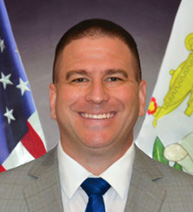
Workshop Moderator
Associate Professor, DKI APCSS
Lumpy joined the Daniel K. Inouye Asia-Pacific Center for Security Studies (DKI APCSS) in 2019 where his academic focus is on Indo-Pacific Counter-Terrorism, Special Operations, Irregular Warfare, and Security Cooperation. He is a retired Special Forces Lieutenant Colonel and held various positions in the US Army’s 1st Special Forces Group (Airborne), Special Operations Command Pacific (SOCPAC), and the Joint US Military Advisory Group Thailand (JUSMAGTHAI). Lumpy led combat, operational, diplomatic, and inter-agency activities in Operation Iraqi Freedom (OIF), Operation Enduring Freedom – Philippines (OEF-P), Haiti, and throughout nearly every country in North, South, and Southeast Asia.
He was commissioned in the Army at Norwich University where he graduated summa cum laude and Distinguished Military Graduate (DMG) with a Bachelor of Arts in International Studies. He earned his Master of Science in Defense Analysis (Irregular Warfare) from the Naval Postgraduate School. He is currently a PhD student in the Helms School of Government at Liberty University.
Event Schedule
8-11 March 2021
All times below are Hawaii Standard Time (HST)
Monday
1300-1315: Moderator Lumpy Lumbaca. Aloha! Workshop Welcome and Administrative Remarks
1315-1415: Deak Roh, Principal Director, SO/CT, Office of the Secretary of Defense (Policy).
Topic: Institutionalizing Irregular Warfare across Defense and Whole of Government.
1415-1420: Break
1420-1520: Colonel (Retired) David Maxwell, Senior Fellow, Foundation for the Defense of Democracies.
Topic: DOD’s Contribution to Political Warfare in the age of Great Power Competition. Presentation.
1520-1525: Break
1525-1555: Ms. Raquel Garbers, Director General, Strategic Defence Policy, Canadian Department of National Defense.
Topic: Military Equities in Below Threshold Conflict Across the DIME. Presentation.
1555-1655: Panel Discussion/Q&A
1655-1700: Administrative Remarks. Day 1 Complete.
Tuesday
1300-1305: Daily Welcome and Administrative Remarks
1305-1435: Dr. Lisa Schirch, Senior Research Fellow for the Toda Peace Institute, the Alliance for Peacebuilding, and George Mason University’s Carter School for Peace and Conflict Resolution.
Topic: Civil Society and Human Security in Grey Zones: Possibilities and Lessons. Presentation and Q&A
1435-1440: Break
1440-1610: Mr. Doowan Lee, Strategic Advisor to the Institute for Security and Technology and Adjunct Professor of Politics at the University of San Francisco.
Topic: Social media, influence, and the importance of being able to exploit big data in Great Power Competition. Presentation and Q&A.
1610-1620: Administrative Remarks. Day 2 Complete.
Wednesday
1300-1305: Daily Welcome and Administrative Remarks
1305-1435: Dr. Tommy Jamieson, Assistant Professor of Strategic Studies, Naval Postgraduate School (NPS).
Topic: Irregular War and China’s First Military Modernization: The Qing Confronts the West. Presentation and Q&A.
1435-1440: Break
1440-1610: Dr. Lori Forman and Dr. Tim Buehrer, DKI APCSS Faculty.
Topic: Gray Zone Economics. Presentation and Q&A.
1610-1620: Administrative Remarks. Day 3 Complete.
Thursday
1300-1305: Daily Welcome and Administrative Remarks
1305-1405: Mr. Joel Johnson and CDR Andy Helchinger, US Indo-Pacific Command (INDOPACOM).
Topic: INDOPACOM’s competition process: How the Combatant Command uses military power short of armed conflict to accomplish or set conditions for national objectives. Presentation.
1405-1410: Break
1410-1440: Mr. Bill Moore, US Special Operations Command – Pacific (SOCPAC).
Topic: The nature of the strategic threat in the Indo-Pacific, and challenges within our current culture and system to achieve national objectives from a Special Operations perspective. Presentation
1440-1445: Break
1445-1545: Mr. Robert Jones, US Special Operations Command (USSOCOM).
Topic: Raise questions and offer alternatives as to “Irregular Warfare to do what, why and how” to get to better strategic results than traditional thinking has yielded. Presentation.
1545-1550: Break
1550-1650: Panel Discussion/Q&A
1650-1700: Moderator Lumpy Lumbaca. Closing Remarks. Workshop Complete. Mahalo!
Event Contact Information
If you have any questions about the workshop, please contact the event logistics coordinator, Ms. Cherrielynn Kamahele at kamahelec@dkiapcss.net


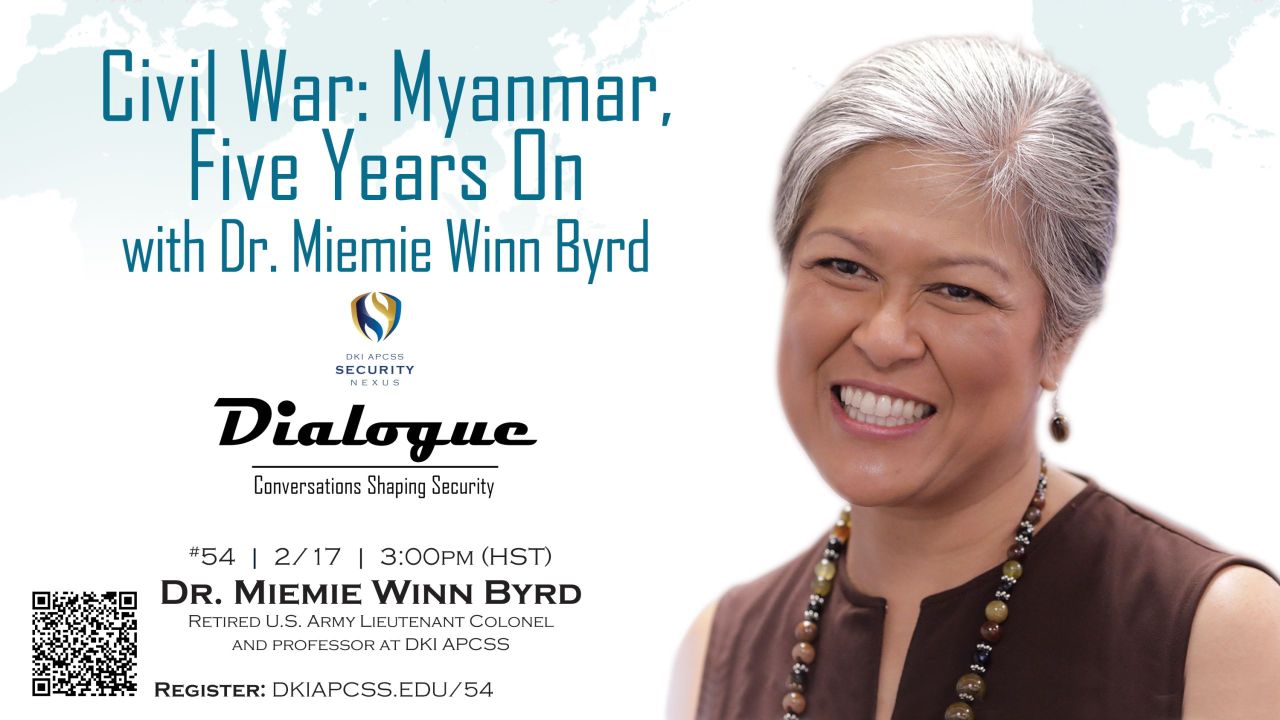
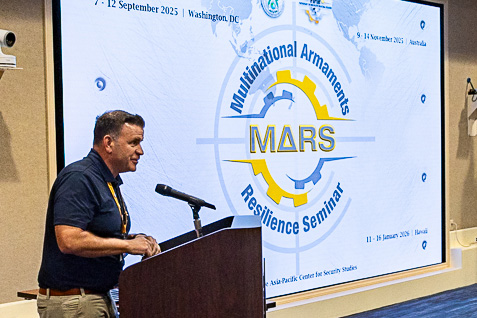
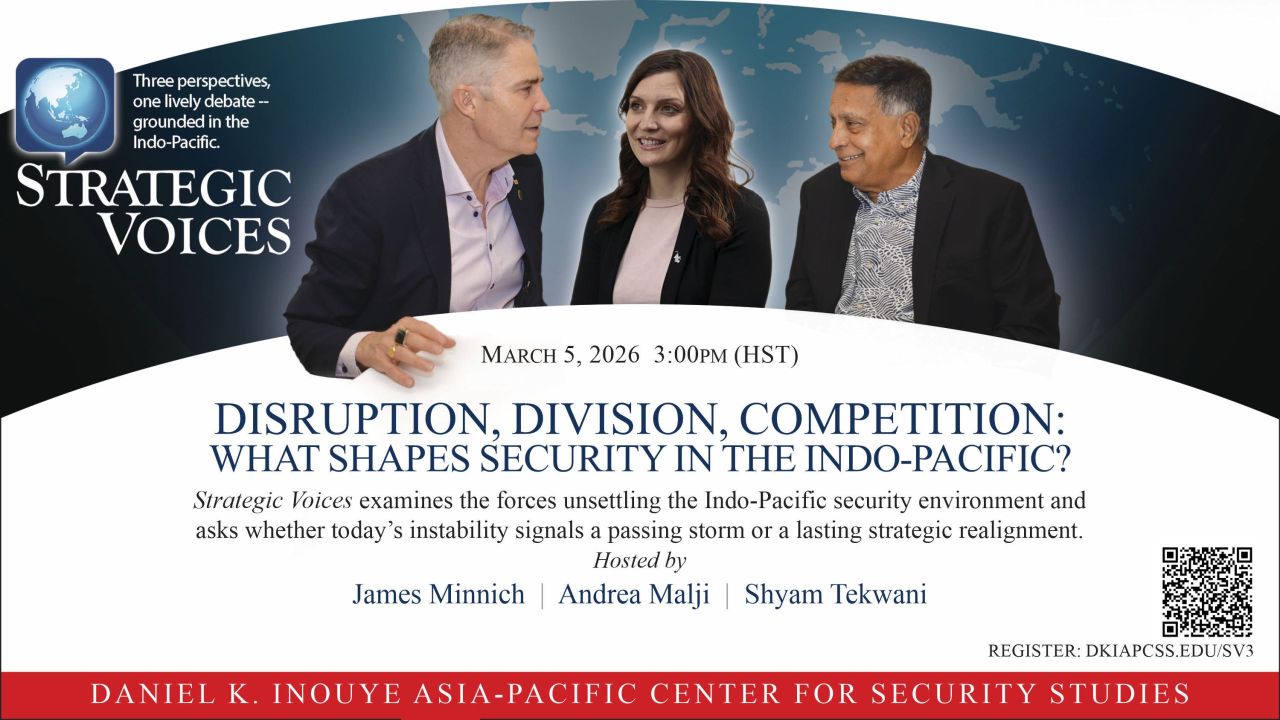




The headlines are very attractive .I’m wondering:
If the decision makers in the new US administration heard about these discussions ?
After the discussions we will have a clear vision about the US policy in the region .
Thank you